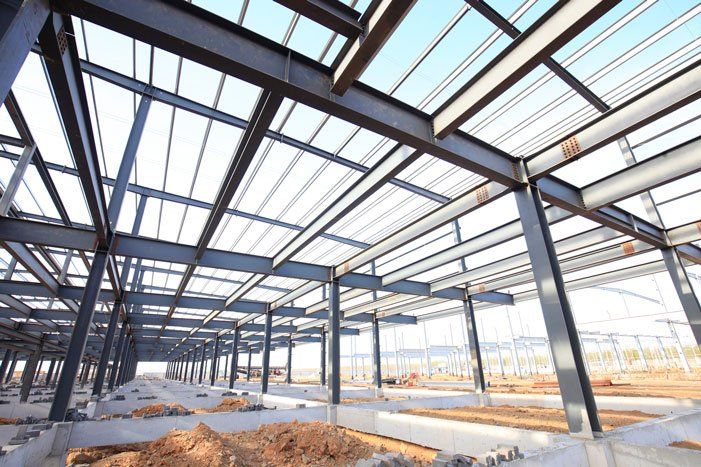What Are The Architectural Elements That Enhance Energy-efficient Insulation In Structures?
Insulation is an essential part of any modern building. It helps regulate temperature, keep unwanted noise out and reduces energy costs – among other benefits. For these reasons, many individuals and businesses are looking for ways to make their spaces more energy-efficient. One of the most effective ways to do this is by installing energy-efficient insulation.
So, what exactly is energy-efficient insulation? In short, it is insulation that has been designed to reduce the amount of energy required to keep a building at a comfortable temperature. There are many different types of energy-efficient insulation on the market, each with its own unique properties. Here are just a few:
Fiberglass Insulation
Fiberglass insulation is one of the most popular types of insulation on the market. It is made from woven glass fibers that are compacted together to form a batt or roll. Fiberglass insulation is lightweight, easy to install and has excellent thermal insulation properties. It is also resistant to fire, moisture and insects, making it a popular choice among homeowners and businesses alike.
Spray Foam Insulation
Spray foam insulation is another popular option. It is made from a mixture of two different chemicals that combine to form a foam. This foam is sprayed onto the surface where insulation is needed, where it expands and solidifies. Spray foam insulation has excellent thermal insulation properties and can be used in areas that are difficult to reach with other insulation types, such as in walls and ceilings.
Cellulose Insulation
Cellulose insulation is made from recycled paper. It is treated with chemicals to make it resistant to fire, moisture and insects. Cellulose insulation has excellent thermal insulation properties and is an affordable option for homeowners and businesses that want to make their spaces more energy-efficient.
Rigid Foam Insulation
Rigid foam insulation is made from a variety of materials, including polystyrene, polyisocyanurate and polyurethane. It is lightweight, easy to install and has excellent thermal insulation properties. Rigid foam insulation can be used in a variety of locations, including walls, roofs and foundations.
Benefits of Energy-Efficient Insulation
Now that we've covered some of the different types of energy-efficient insulation available, let's take a look at some of the benefits of using this type of insulation in your home or business:
1. Reduced Energy Costs
Perhaps the most obvious benefit of energy-efficient insulation is the cost savings. By reducing the amount of energy required to keep a building at a comfortable temperature, you can significantly reduce your energy bills. This can be especially significant for larger buildings, such as commercial properties.
2. Improved Comfort
Energy-efficient insulation can also help improve the comfort of your home or business. By regulating temperature more effectively, you can ensure that your space stays comfortable year-round, with fewer drafts and cold spots.
3. Better Soundproofing
Many types of energy-efficient insulation also have excellent soundproofing properties. This can be particularly beneficial in urban areas or high-traffic areas, where outside noise can be a major disturbance.
4. Reduced Environmental Impact
By reducing the amount of energy required to heat and cool your building, you can also reduce your environmental impact. This can be especially important for those who are looking to reduce their carbon footprint and help protect the environment.
5. Improved Indoor Air Quality
Many types of energy-efficient insulation are also designed to resist mold and mildew growth. This can help improve indoor air quality and reduce the risk of respiratory problems.
6. Increased Property Value
Finally, by investing in energy-efficient insulation, you can increase the value of your property. Energy-efficient buildings are becoming increasingly popular, and are often viewed as a positive selling point for potential buyers or renters.
FAQ
Q: How much can I expect to save by investing in energy-efficient insulation?
A: The savings you can expect to see will vary depending on a number of factors, including the size of your building, your local climate and energy costs. However, studies have shown that energy-efficient insulation can reduce energy costs by anywhere from 10% to 50%.
Q: Is energy-efficient insulation suitable for all types of buildings?
A: Yes! Energy-efficient insulation can be used in a variety of different buildings, including homes, commercial properties, schools and hospitals.
Q: How do I choose the right type of energy-efficient insulation for my building?
A: Choosing the right type of insulation will depend on a number of factors, including your budget, the age of your building and the climate in your area. A professional insulation contractor can help you determine the best type of insulation for your needs.
Q: Is energy-efficient insulation expensive?
A: The cost of energy-efficient insulation will depend on a variety of factors, including the type of insulation you choose, the size of your building and your location. However, many people find that the savings they experience on their energy bills make the initial investment well worth it.
Q: Can I install energy-efficient insulation myself?
A: While it is possible to install some types of insulation yourself, we recommend hiring a professional contractor to ensure that the installation is done correctly. This will help ensure that you get the full benefits of energy-efficient insulation, and can help prevent costly mistakes down the line.
Q: Are there any incentives or tax breaks available for investing in energy-efficient insulation?
A: Yes! Both the federal government and many state governments offer tax incentives and rebates for homeowners and businesses that invest in energy-efficient insulation. Check with your local energy provider or tax agency for more information.
In conclusion, energy-efficient insulation is an excellent investment for homeowners and businesses looking to reduce their energy costs, improve comfort and reduce their environmental impact. By choosing the right type of insulation and hiring a professional contractor for installation, you can enjoy the many benefits of this popular building trend.



Post a Comment for "What Are The Architectural Elements That Enhance Energy-efficient Insulation In Structures?"